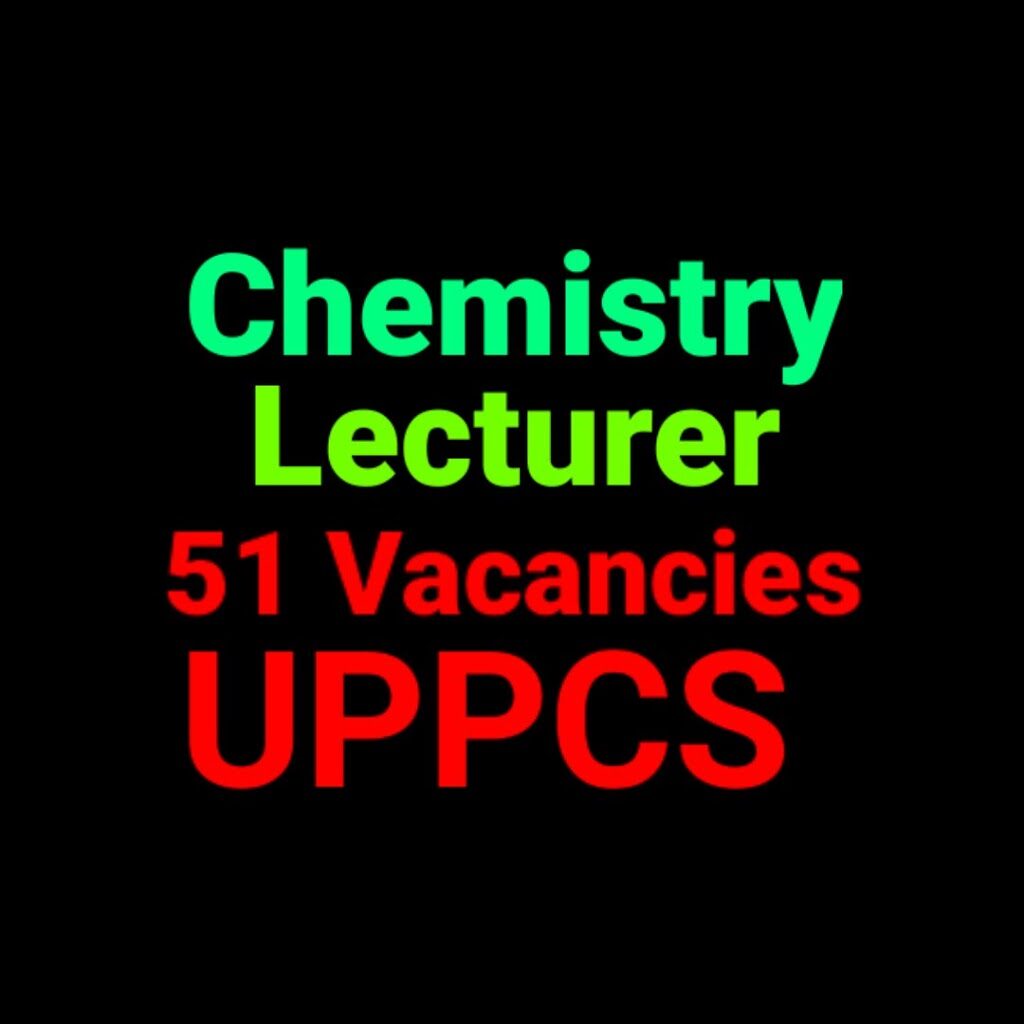Dear teachers Here we are providing some important questions of Hemoglobin and Myoglobin, Dyes, Chemicals in Agriculture, Vitamins.
You are advised to prepare these topics for Up PGT Chemistry exam because two or more questions will be asked in exam.
Hemoglobin and Myoglobin
1. Hemoglobin is primarily responsible for:
(A) Transporting oxygen
(B) Storing oxygen
(C) Transporting carbon dioxide
(D) Breaking down nutrients
Answer: (A) Transporting oxygen
2. Which metal ion is central to the structure of hemoglobin?
(A) Magnesium
(B) Iron
(C) Zinc
(D) Copper
Answer: (B) Iron
3. Myoglobin is found in:
(A) Bones
(B) Liver
(C) Muscles
(D) Lungs
Answer: (C) Muscles
4. The oxygen dissociation curve of hemoglobin is:
(A) Sigmoidal
(B) Linear
(C) Hyperbolic
(D) Parabolic
Answer: (A) Sigmoidal.
5. The quaternary structure of hemoglobin consists of:
(A) 2 subunits
(B) 3 subunits
(C) 4 subunits
(D) 6 subunits
Answer: (C) 4 subunits
6. The molecule that competes with oxygen for binding sites in hemoglobin is:
(A) Nitrogen
(B) Carbon monoxide
(C) Hydrogen
(D) Sulfur dioxide
Answer: (B) Carbon monoxide
Dyes
7. Which dye is commonly used in textiles?
(A) Methyl orange
B) Indigo
(C) Eosin
(D) Phenolphthalein
Answer: (B) Indigo
8. The chromophore in a dye is responsible for:
(A) Stability
(B) Color
(C) Solubility
(D) Fluorescence
Answer: (B) Color
9. Which of the following is a natural dye?
(A) Alizarin
(B) Malachite green
(C) Aniline blue
(D) Indigo
Answer: (D) Indigo
10. What type of dye is used for coloring polyester fabrics?
(A) Azo dyes
(B) Disperse dyes
(C) Acid dyes
(D) Reactive dyes
Answer: (B) Disperse dyes
11. Phenolphthalein is used as:
(A) A textile dye
(B) A biological stain
(C) An acid-base indicator
(D) A pH stabilizer
Answer: (C) An acid-base indicator
Chemicals in Agriculture
12. Which of the following is a widely used pesticide?
(A) Urea
(B) DDT
(C) Sodium chloride
(D) Glucose
Answer: (B) DDT 1
13. What is the primary use of potassium nitrate in agriculture?
(A) Insecticide
(B) Herbicide
(C) Fertilizer
(D) Fungicide
Answer: (C) Fertilizer
14. Glyphosate is a:
(A) Herbicide
(B) Fungicide
(C) Pesticide
(D) Fertilizer
Answer: (A) Herbicide
15. Which chemical increases soil acidity?
(A) Lime
(B) Ammonium sulfate
(C) Urea
(D) Potassium chloride
Answer: (B) Ammonium sulfate
16. The Haber process is used to synthesize:
(A) Phosphates
(B) Ammonia
(C) Sulfuric acid
(D) Nitric acid
Answer: (B) Ammonia
17. Which of the following is an organic pesticide?
(A) Malathion
(B) Neem oil
(C) Carbaryl
(D) Paraquat
Answer: (B) Neem oil.
Vitamins
18. Vitamin C is also known as:
(A) Thiamine
(B) Riboflavin
(C) Ascorbic acid.
(D) Retinol.
Answer: (C) Ascorbic acid
19. Which vitamin is water-soluble?
(A) Vitamin A
(B) Vitamin D
(C) Vitamin C
(D) Vitamin K
Answer: (C) Vitamin C
20. Deficiency of Vitamin D causes:
(A) Rickets
(B) Scurvy
(C) Beriberi
(D) Pellagra
Answer: (A) Rickets
21. Vitamin K is essential for:
(A) Vision
(B) Blood clotting
(C) Bone growth
(D) Metabolism
Answer: (B) Blood clotting
22. Which vitamin contains cobalt in its structure?
(A) Vitamin B6
(B) Vitamin B12
(C) Vitamin D
(D) Vitamin E
Answer: (B) Vitamin B12
23. The primary source of Vitamin D is:
(A) Milk
(B) Sunlight
(C) Green vegetables
(D) Fruits
Answer: (B) Sunlight (But sun light helps in synthesis in Vit D it does not contain Vit D. Other sources are Fish liver oil, egg yolks. mushroom)
24. Vitamin A is also called:
(A) Ascorbic acid
(B) Retinol
(C) Niacin
(D) Folic acid
Answer: (B) Retinol
25. Which vitamin acts as an antioxidant?
(A) Vitamin K
(B) Vitamin D
(C) Vitamin E
(D) Vitamin B12
Answer: (C) Vitamin E
26. Deficiency of niacin (Vitamin B3) causes:
(A) Pellagra
(B) Scurvy
(C) Rickets
(D) Night blindness
Answer: (A) Pellagra
27. The deficiency of folic acid (Vitamin B9) causes:
(A) Anemia
(B) Goiter
(C) Diabetes
(D) Scurvy
Answer: (A) Anemia
28. Which vitamin is synthesized by gut bacteria?
(A) Vitamin A
(B) Vitamin K
(C) Vitamin C
(D) Vitamin B12
Answer: (B) Vitamin K
29. What is the primary function of thiamine (Vitamin B1)?
(A) Vision
(B) Metabolism of carbohydrates
C) Bone strength
(D) Blood clotting
Answer: (B) Metabolism of carbohydrates
30. Vitamin B2 is also known as:
(A) Riboflavin
(B) Niacin
(C) Pyridoxine
(D) Cyanocobalamin
.Answer: (A) Riboflavin.
Solve these question
- Which pesticide is classified as an organophosphate?
(a) DDT (b) Malathion (c) Lindane (d) 2,4-D - Which of the following is a green manure? (a) Sunhemp (b) Urea (c) Superphosphate (d) Ammonium sulfate
- Which chemical is commonly used as a fertilizer? (a) Ammonium nitrate (b) Sodium chloride (c) Calcium carbonate (d) Potassium hydroxide
- Which of the following dyes is used in the textile industry? (a) Congo red (b) Bromophenol blue (c) Tartrazine (d) Malachite green
Ans- 1. (b) Malathion Solution: Malathion belongs to the organophosphate group, which affects the nervous system of pests.
Ans 2-(a) Sunhemp Solution: Green manures like sunhemp are grown and plowed under to enrich the soil with organic matter and nitrogen.
Ans 3 (a) Ammonium nitrate Solution: Ammonium nitrate provides nitrogen, an essential nutrient for plant growth.
Ans 4- (d) Malachite green Solution: Malachite green is widely used for dyeing silk, wool, and leather.
